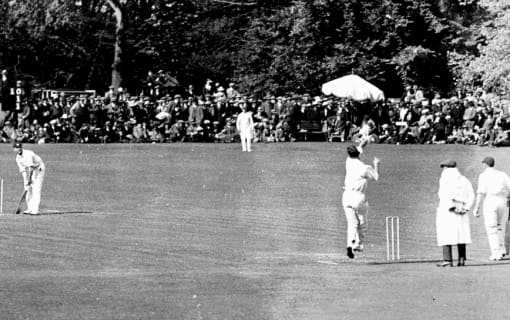(estimated 4 minute read time)
In recent years, the world of cricket has been inundated with new short formats of the game like T20 and The Hundred. Tournaments like The Hundred, the Indian Premier League (IPL) and Big Bash in Australia have drawn millions of spectators with a swashbuckling, explosive brand of cricket with music and pyrotechnics included!
T20 and The Hundred matches are often held at night under the lights and with the games only lasting three or four hours, they have become great family entertaining options, as well as thrilling sporting occasions.
Such has been the popularity of short-format domestic cricket, the interest in international Test cricket started to decline. Test cricket, which is the longest format of the game and is often considered the pinnacle of cricket had been struggling for some years to draw both the crowds and younger audience that seemed to gravitate to T20 and The Hundred.
The cricketing establishment had to respond and in 2018, the International Cricket Council (ICC) introduced a new tournament, the World Test Championship (WTC) which would determine the world’s best cricket team.
In an attempt to add context and meaning to Test cricket, which is widely regarded as the purest and most challenging form of the game, the WTC was welcomed by players, coaches, and fans as a way of bringing more excitement and interest to Test cricket.
Prior to the introduction of the WTC, Test cricket matches were played without any long-term tournament structure, and there was no official recognition of a world champion in the format. This lack of context and structure led to a decline in interest in Test cricket and a lack of meaningful matches.
The WTC was designed to address these issues by creating a championship format for Test cricket, similar to the World Cup in One-Day International (ODI) cricket. The WTC provides a point-based system for teams to accumulate points from their matches over a two-year period, culminating in a final between the top two teams in the standings.
After the announcement in 2018, the inaugural edition of the tournament took place between 2019 and 2021 and involved the top nine Test-playing nations, who play each other in a series of bilateral matches over a two-year period. Each team plays six series – three at home and three away – with a maximum of 120 points available for each series. The two teams with the most points at the end of the league stage qualify for the final, which is played at a neutral venue.
The points system for the WTC is as follows: a win earns a team 120 points, a tie earns 60 points, and a draw earns between 0 and 60 points depending on the number of overs bowled in the match. A bonus point is also awarded for winning a series by a margin of 2-0, 2-1, 3-0, 3-1 or 4-0.
The final of the WTC is a one-off match played over five days, with a reserve day available in case of bad weather. The venue for the final is decided by the ICC, considering factors such as pitch conditions, weather, and the commercial potential of the host city. The winner of the final is crowned the world champion of Test cricket.
The first edition of the WTC was won by the New Zealand cricket team, who defeated India in the final at the Ageas Bowl in Southampton, England in June 2021. The tournament was praised for its competitive and unpredictable nature, with several teams in contention for a place in the final right up until the last round of matches.
Overall, the WTC provides more significance to Test cricket matches and creates a clear pathway for teams to compete for the title of world Test champions. The introduction of the WTC has generated more interest in Test cricket, has led to more competitive and exciting matches and has added an exciting new dimension to Test cricket, giving fans and players alike a renewed appreciation for this historic and enduring format of the game.
With the 2023 World Test Championship Final due to be held at The Kia Oval in London, Australia have already qualified and with India their likely opponent this will be a showdown of Test cricket in South London.








